What will MSPs be doing during the general election campaign?
- Published
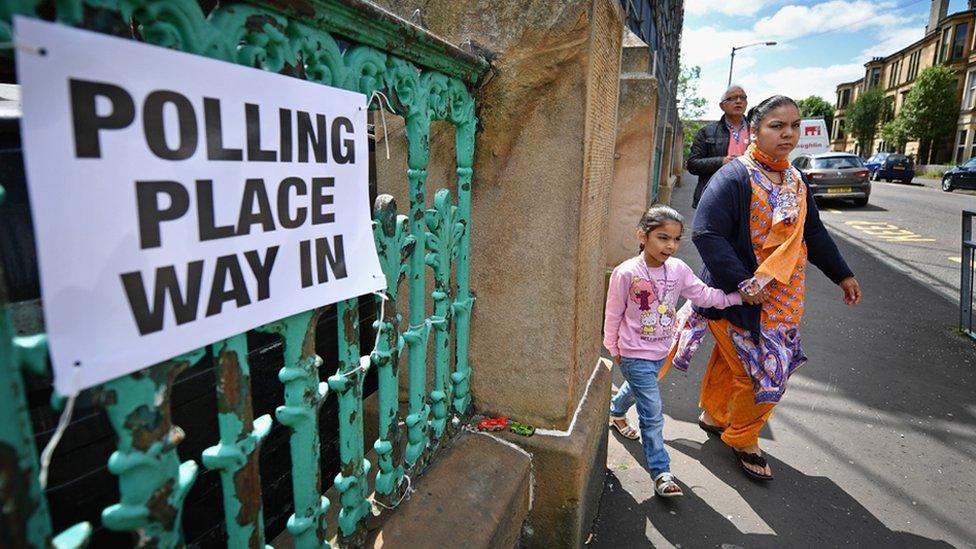
Voters will go to the polls again on 12 December
Westminster has shut down ahead of the snap general election on 12 December - but the Scottish Parliament will continue to sit. What happens at Holyrood during the general election period?

Budgetary bind
In theory, the day job of devolved governance continues as usual at Holyrood, even against the backdrop of the election campaign, right up to (but not including) polling day.
Debates are still held, committees continue to sit, and scrutiny of legislation continues.
However, one major set-piece event on the political calendar has already been disrupted - the budget.
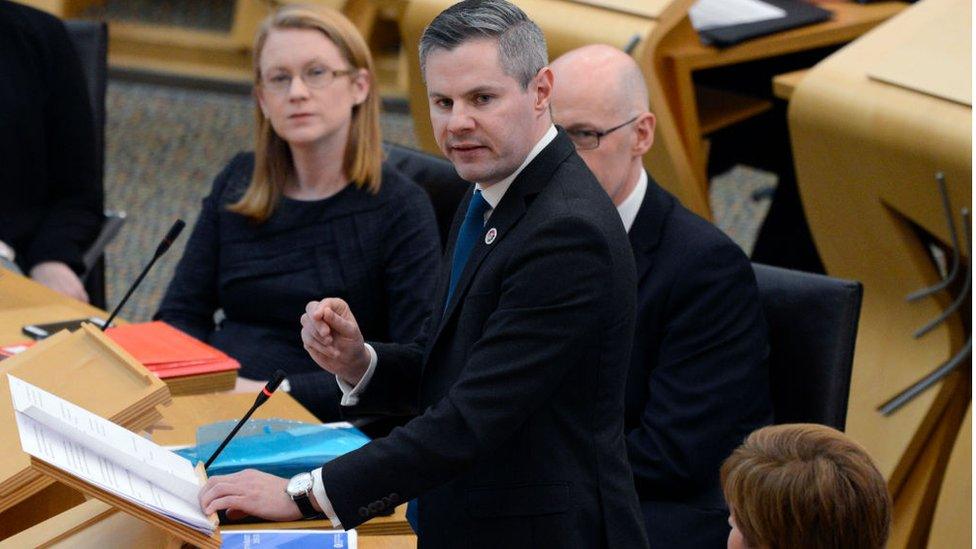
When will Derek Mackay get to set out his budget plans?
Finance Secretary Derek Mackay was planning on announcing his spending plans for the year ahead to MSPs on December 12, but something else has come up that day.
Mr Mackay can't really make plans until the Chancellor has set out the UK budget, which will confirm how much funding is heading north in the block grant. And with the UK budget being scrapped in favour of an election, we don't even know who the Chancellor is going to be.
This could have serious knock-on consequences for Holyrood. Realistically, by the time a new government is installed at Westminster and has set out its own spending plans, Mr Mackay's budget is probably going to be announced in January. That's presuming there isn't a hung parliament and lengthy talks about who takes power.
MSPs had already voiced concerns that they didn't have enough time to scrutinise the budget on its previous December timetable; now they face the prospect of having to push a budget bill through in a matter of weeks.
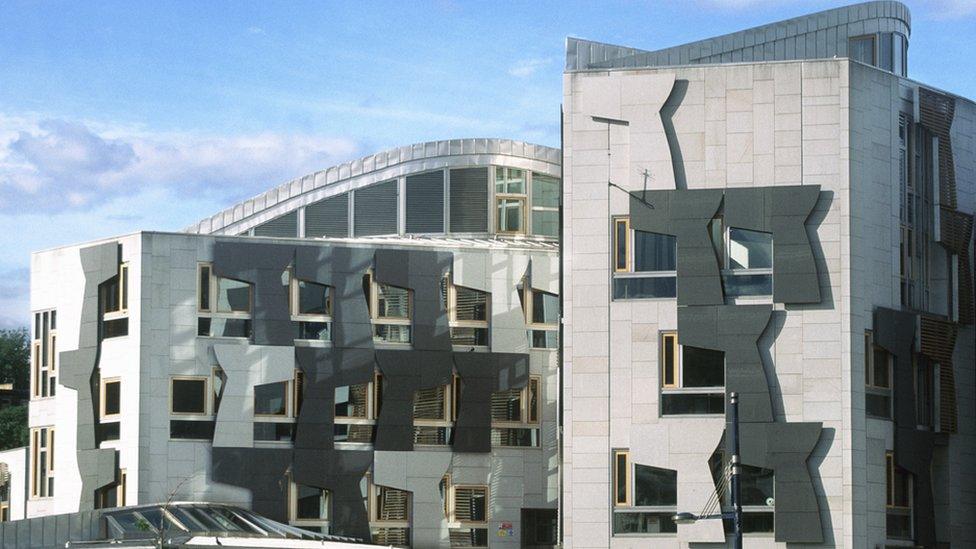
The uncertainty knocks on to councils, who can't set their budgets until they find out how much funding they're getting from Holyrood.
If the situation gets really drawn out, the budget bill can always be postponed - spending plans would simply continue at the levels set last year.
However, what can't be put off is a vote on the Scottish Rate Resolution, external. If one of those isn't passed to set Scotland's devolved income tax rates by the start of the new financial year - the end of March - then the Scottish rate of income tax simply ceases to apply.
This is a real worry for Mr Mackay, but it's one that ultimately can't be resolved until after the election.

Sticking to the day job
While the day job for the most part continues at Holyrood, there are certain restrictions in place to make sure that public money isn't being used for party-political purposes.
Guidance to civil servants, external issued before the 2017 poll noted that "it needs to be borne in mind that the activities of the Scottish government could have a bearing on the UK general election campaign".
This is particularly the case around ministerial visits and "the announcement of Scottish government decisions".
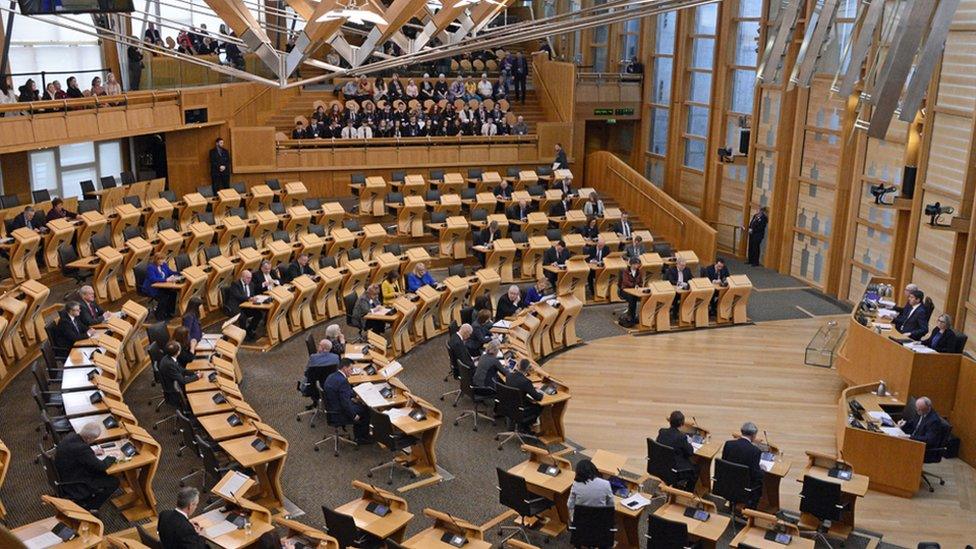
Ministers themselves are advised to have "be aware of particular sensitivities" during this period, and even in some circumstances to "postpone making certain speeches or announcements until after the general election".
In practice, party political controversy is going to be hard to avoid at Holyrood. The government of the day has the right to continue to pursue its policy agenda, and at least parts of that are knitted right into the election debate.
For example, the issue of a future Scottish independence referendum is already a big deal in the campaign, with the SNP putting it at the heart of their platform and the Conservatives and Labour arguing about who would or wouldn't agree to holding one.
There is going to be no getting around this issue at Holyrood, given the Referendums (Scotland) Bill, designed to facilitate "indyref2", is currently halfway through the parliamentary process and indeed is due to be debated this Thursday.
Literally every speech in that debate, by ministers and opposition members alike, could potentially have a bearing on the election.

Deflating debates
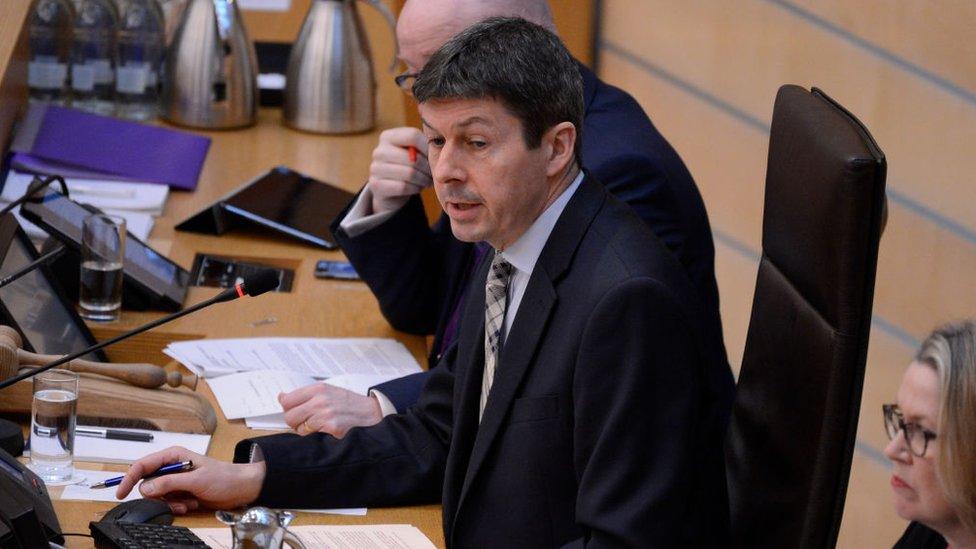
It's going to be a long six weeks for Presiding Officer Ken Macintosh
The business of government is one thing, but what about the parliament as a whole?
Technically, the daily work of the parliament should continue to be about the Scottish government and its actions in devolved areas, not what's going on or indeed who's in charge at Westminster.
The day after it was confirmed the country was going to the polls on December 12, Presiding Officer Ken Macintosh appealed for MSPs "not to bring election politics into the chamber too much", stressing that "I do not want to hear any pleas to vote for one party or another".
Best of luck with that, Ken.
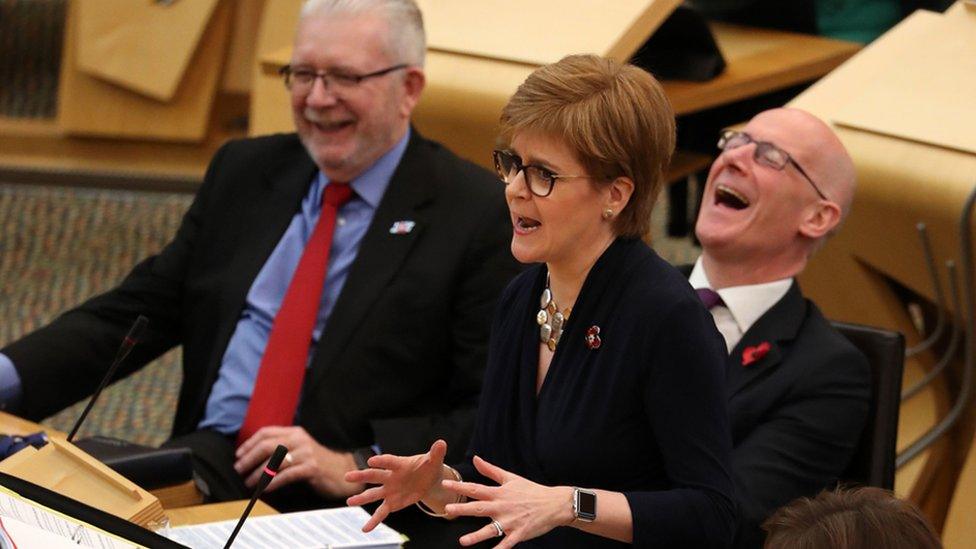
The election took centre stage at First Minister's Questions
The following day at first minister's questions, there were no fewer than a dozen references to "election politics", with seven separate "pleas to vote for one party or another".
It actually got to the point where leaders were outlining target seats and urging voters there to back their side. It was like a hustings, and there was little Mr Macintosh could do about it.
The other issue is that MSPs are going to have to split their time between Holyrood and the campaign trail, where they will be helping get the vote out for their local party colleagues.
For all that party chiefs will want them out knocking on doors around the country, members will still need to be back in Edinburgh to vote come 17:00, Tuesday to Thursday, particularly when there is legislation under consideration.